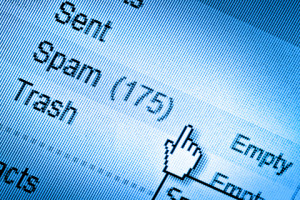 Long gone are the days when work email stayed at work, where the only way to check it was to log into your desktop. With the rise of smartphones and tablets, it’s easier than ever to check email or to respond to that ‘ding’, whenever and wherever.
IT solutions provider, GFI Software, sponsored a blind survey of 503 employees in small and medium-sized businesses in the U.S. to gauge work-related email habits and to assess how much email plays into our work and personal lives. It found that 90% of respondents considered email a blessing, despite its ubiquity and the stresses associated with the influx of information.
Long gone are the days when work email stayed at work, where the only way to check it was to log into your desktop. With the rise of smartphones and tablets, it’s easier than ever to check email or to respond to that ‘ding’, whenever and wherever.
IT solutions provider, GFI Software, sponsored a blind survey of 503 employees in small and medium-sized businesses in the U.S. to gauge work-related email habits and to assess how much email plays into our work and personal lives. It found that 90% of respondents considered email a blessing, despite its ubiquity and the stresses associated with the influx of information.
“It’s a blessing because you fell connected. It’s about being available and having more flexibility in the workday,” said Sergio Galindo, global head of product management at GFI Software, which conducted the survey. “You don’t have to be at a desk and you can still be productive.”
More than three-quarters of respondents (81%) said they check their work email on weekends, 55% check email after 11 p.m. and 59% keep on top of their work email while on vacation. It would seem from these statistics that email is getting in the way of the distractions that may be help us to be more productive when we return to the office, but Galindo says that keeping email productive is a matter of good use and prioritization.
“Giving the volume of email [we receive every day], management is important,” he said. “The iPhone has the ‘do not disturb’ feature. Prioritize emails by subject line, and [letting other emails wait] by setting 'me' time. Our consumption rate of information has gone down because there’s so much.”
Our consumption rates are also at risk when you consider that we aren’t just checking email during our off hours, but during other events as well. One in 10 respondents admitted to checking work email at a child’s school event, 9% at a wedding, and 6% at a funeral. An additional 6% said they logged into their work email while they or their spouse was in labor. Productivity is much tougher when your child is being born, or when a friend or family member is getting married.
Email management isn’t just managing your use and restraining yourself from responding right away, (76% of respondents, according to the survey, said they typically reply to emails within one hour during work hours), but it’s also looking at how email is used to conduct day-to-day activities. It’s here that businesses could improve productivity by looking at how email is integrated into sales processes, finances, human resources etc.
“Email is a huge repository of information,” Galindo said. “You can see how people are interacting. For example, with sales you can see how often emails are sent and how you can improve the process. Are people sending too few emails, and do they need to be more persistent?”
Another good productivity example is from an IT perspective, where those with large inboxes often have the slowest loads times and sync times for their email. These employees complain about the slowness, or waste time waiting or trying to find something, when simple organization would fix the problem.
“Technology has improved. We are more engaged and we can respond quickly,” Galindo said. “As the main communication format [for employees], it’s important to businesses, and it’s important to learn how to use email.”
